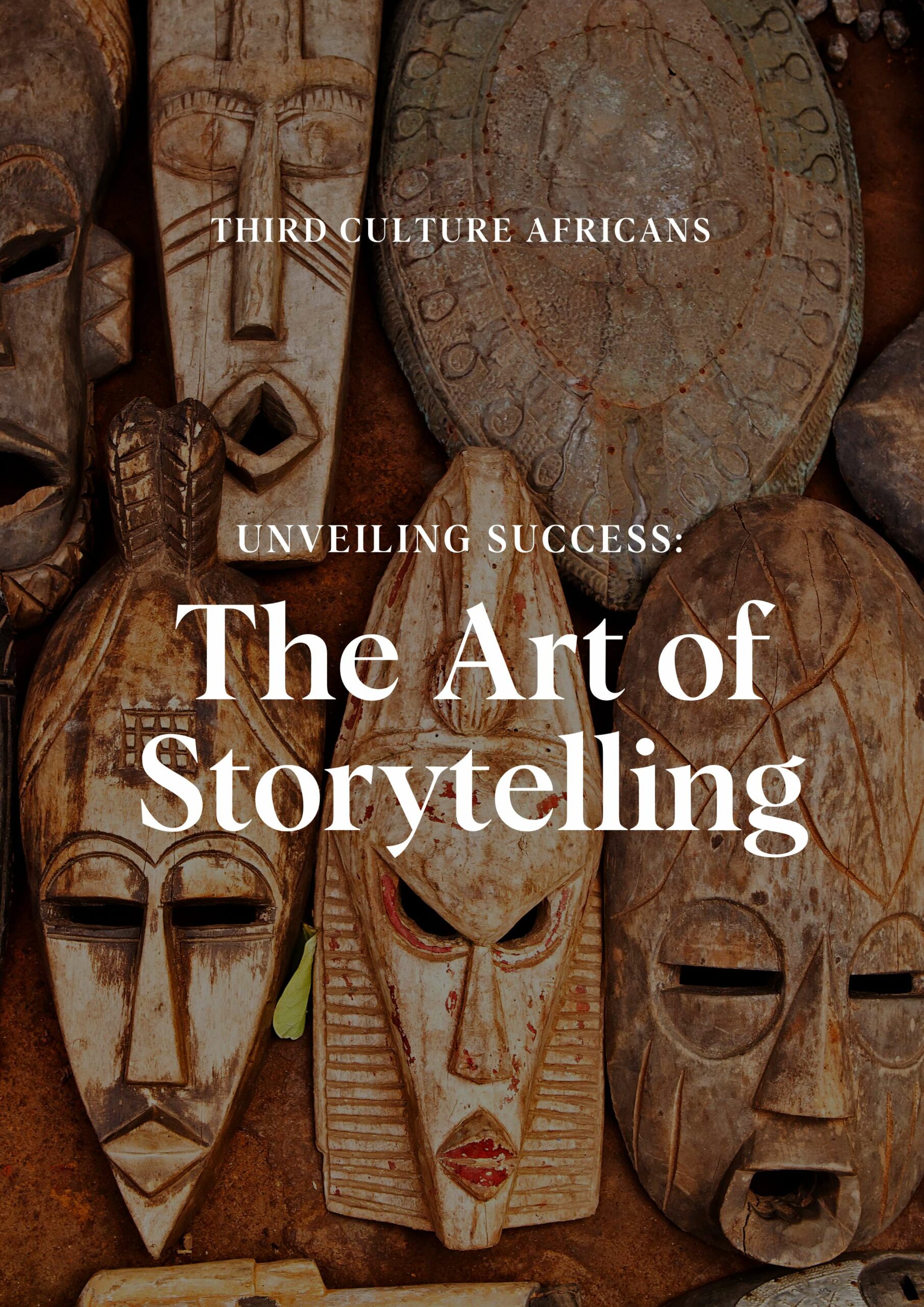Narratives play a pivotal role in shaping individual experiences and personal growth, functioning as a lens through which individuals interpret their lives.
Life stories—whether conveyed through literature, film, or personal reflection—allow individuals to construct meaning from their experiences, providing a framework for understanding challenges, triumphs, and the emotional landscape of their journeys.
By examining the narratives they encounter and those they create, individuals often find clarity and insight into their motivations, values, and aspirations. The process of storytelling becomes instrumental in facilitating personal development, helping individuals to reframe obstacles as opportunities for growth.
Moreover, narratives foster empathy and connection, as shared stories can resonate deeply across diverse experiences, enabling a collective understanding of the human condition. In this article, the intricate relationship between narrative and personal growth will be explored, highlighting how storytelling influences self-perception, resilience, and the ability to navigate life’s transitions.
By delving into the mechanics of narrative construction and its psychological impact, this exploration aims to illuminate the transformative power of stories in guiding individuals toward a deeper understanding of themselves and their potential for growth.
Narrative enables reflection on experiences.
Narratives serve as a powerful mechanism for individuals to process and interpret their experiences. By framing events within a coherent storyline, narratives facilitate the organization of thoughts and emotions, allowing individuals to examine their actions and decisions within a broader context.
This introspective process often leads to a deeper understanding of personal values, motivations, and the impact of one’s choices. As individuals articulate their experiences through narrative, they engage in a form of meaning-making that helps to clarify complex feelings and thoughts, ultimately fostering personal growth and resilience.
Moreover, the act of storytelling encourages individuals to explore different perspectives and possibilities, enhancing their capacity for empathy and self-awareness. By recounting their experiences, individuals can step outside their immediate emotional responses and consider alternative interpretations and outcomes.
This reflective engagement not only contributes to an enriched understanding of the self but also promotes adaptive coping strategies in the face of future challenges. Thus, narratives serve as both a tool for reflection and a catalyst for transformative learning, emphasizing their vital role in the journey of personal development.
This social engagement further enhances their self-concept by providing external perspectives that either reinforce or challenge their self-perceptions.
Personal stories foster emotional understanding.
Through the sharing of personal stories, individuals cultivate emotional understanding that transcends mere sympathy. When people recount their experiences, they invite others into their emotional landscapes, allowing listeners to connect on a deeper level.
This connection can break down barriers, as it showcases the shared human experience of struggle, joy, and vulnerability. As listeners engage with these narratives, they often find echoes of their own experiences, which fosters a sense of community and solidarity.
The process of understanding through narrative not only enhances interpersonal relationships but also promotes a greater awareness of diverse life circumstances and emotional responses.
Furthermore, personal narratives serve as educational tools that facilitate emotional literacy. By articulating their own experiences, individuals provide insight into the complexities of their feelings and the context surrounding their choices.
This sharing promotes a dialogue that encourages others to reflect on their emotional responses and the underlying reasons for those feelings. As stories unfold, they reveal the nuances of human emotion, encouraging a more profound grasp of concepts such as grief, joy, conflict, and resolution.
Ultimately, this exchange of personal experiences nurtures a collective emotional intelligence that bolsters both individual and communal understanding.

Check out our podcast!
Narratives enhance self-identity development processes.
In the context of self-identity development, narratives play a pivotal role by offering individuals the means to construct and reconstruct their personal identities over time. When individuals recount their life stories, they not only reflect on past experiences but also make sense of how those experiences have shaped their current selves.
This reflective process allows for the integration of various life events into a coherent narrative, which in turn fosters a stronger sense of self. By engaging in this storytelling, individuals can explore their values, beliefs, and aspirations, leading to a more profound understanding of who they are and who they wish to become.
Moreover, the act of sharing and listening to narratives can significantly influence identity formation within social contexts. As individuals tell their stories, they receive feedback and validation from others, which can affirm their feelings and experiences.
This social engagement further enhances their self-concept by providing external perspectives that either reinforce or challenge their self-perceptions. Consequently, narratives become not only a means of personal exploration but also a collaborative process that shapes the individual’s identity in relation to the community and culture they inhabit.
Through the interplay of personal and communal narratives, individuals navigate their identity development with greater clarity and self-awareness.
Storytelling facilitates connection with others.
Through the sharing of personal narratives, individuals establish connections that transcend mere communication, fostering empathy and understanding among listeners. When stories are shared, they create a communal space where emotions, experiences, and values can be exchanged, allowing participants to identify commonalities and appreciate differences.
This relational dynamic not only enriches the listener’s perspective but also empowers the storyteller, reinforcing their sense of belonging within a social framework. As individuals engage in this reciprocal exchange, they cultivate a deeper appreciation for the diverse human experience, which serves to strengthen social bonds and facilitate a supportive network.
Moreover, the process of storytelling acts as a bridge between individuals, helping to dismantle barriers of isolation and misunderstanding. By articulating personal experiences, storytellers invite others to reflect on their own lives and experiences, thereby fostering a shared sense of humanity.
This interaction can lead to the creation of collective narratives that resonate across various backgrounds and contexts, reinforcing the idea that personal struggles and triumphs are often universal. In this way, storytelling not only enhances personal growth but also plays a critical role in the development of social cohesion and the nurturing of empathy within communities.
Experiences shape individual narrative frameworks.
The construction of individual narrative frameworks is profoundly influenced by the collection of experiences that individuals encounter throughout their lives. Each experience, whether positive or negative, contributes to the tapestry of personal identity, enabling individuals to interpret and make sense of their realities.
Through the lens of these experiences, people develop unique frameworks that guide their understanding of self and the world around them. This ongoing process of meaning-making allows for the integration of diverse life events into a coherent narrative, facilitating personal growth and transformation.
As individuals navigate the complexities of their journey, the interplay of experiences and narrative shapes their cognitive and emotional landscapes. The way in which stories are framed and retold influences not only the perception of past events but also the anticipations for future possibilities.
In this dynamic process, individuals learn to reinterpret challenging experiences, reframe setbacks as opportunities for growth, and ultimately refine their identities.
Consequently, the evolution of personal narrative frameworks reflects an ongoing dialogue between lived experiences and the interpretations that individuals ascribe to them, underscoring the intricate relationship between narrative and personal development.
Narratives influence future decision-making abilities.
The narratives individuals construct significantly inform their decision-making processes by providing a contextual backdrop against which choices are evaluated. When individuals recount their experiences, they not only highlight critical moments but also imbue those moments with meaning, shaping future actions based on perceived lessons learned.
This retrospective reflection often leads to the formation of heuristic principles—rules of thumb that guide decision-making, rooted in past narratives. Consequently, the way individuals interpret their experiences can either empower them to embrace risks and opportunities or constrain them through a fear of repeating past mistakes.
Moreover, narratives serve as a cognitive tool that allows individuals to envision potential futures. By drawing on past experiences and the stories that have been built around them, individuals create scenarios that inform their expectations of outcomes in various situations.
This cognitive rehearsal thus enables them to anticipate challenges, weigh alternatives, and ultimately make decisions that align with their evolving self-concept. In this manner, the interplay between narrative construction and decision-making not only influences immediate choices but also shapes long-term trajectories of personal development and growth.
Check out this podcast!
Personal growth emerges through storytelling.
Storytelling acts as a transformative vehicle for personal growth, allowing individuals to articulate their internal landscapes and forge connections between their past, present, and future selves. Through the act of narrating personal experiences, individuals engage in a form of self-exploration that promotes introspection and encourages the reassessment of previously held beliefs and values.
This process not only aids in the consolidation of identity but also fosters resilience, as the individual learns to reinterpret challenges and setbacks as integral components of their life story. By framing experiences within a narrative structure, individuals can leverage the power of storytelling to cultivate a sense of agency and purpose.
Furthermore, the communal aspect of storytelling provides a platform for shared experiences, facilitating empathy and understanding both within oneself and among peers. Engaging with the narratives of others can illuminate common struggles and triumphs, thereby reinforcing the notion that personal growth is not solely an individual endeavor.
The exchange of stories creates a relational space where individuals can draw strength from one another, expanding their perspectives and enriching their own narratives. In this way, storytelling not only contributes to self-development but also weaves a tapestry of collective understanding that underscores the interconnectedness of human experiences.
Reflective narratives promote transformative learning.
Through reflective narratives, individuals can critically examine their experiences, leading to transformative learning that reshapes their perspectives and fosters profound personal development. This process encourages them to confront their assumptions and biases, enabling a deeper understanding of their motivations and the contexts in which they operate.
As they articulate their stories, they uncover insights that may have previously remained unexamined, facilitating cognitive dissonance that prompts significant shifts in thinking. The reflective nature of these narratives allows for a more nuanced comprehension of one’s experiences, ultimately promoting a sense of authenticity and coherence in their personal journey.
Moreover, the transformative potential of reflective narratives is amplified in collaborative settings, where sharing stories fosters a sense of community and belonging. By engaging with diverse perspectives, individuals are exposed to alternative interpretations of experiences, which can challenge their own viewpoints and expand their understanding of the human experience.
This interaction not only validates their individual narratives but also encourages a collective exploration of meaning, fostering empathy and reinforcing the notion that personal growth is both an individual and communal endeavor.
In this manner, reflective narratives serve as a critical tool in the ongoing process of learning and personal transformation, highlighting the interconnectedness of individual journeys.
In conclusion, the role of narrative in shaping personal growth experiences is multifaceted and profoundly significant. By constructing and reflecting on their personal stories, individuals are able to gain insights into their identities, motivations, and aspirations.
This process not only fosters self-awareness but also enables individuals to reframe challenges as opportunities for growth. Moreover, the narratives that individuals create are influenced by cultural, social, and contextual factors, demonstrating the interconnectedness of personal experiences with broader societal narratives.
Ultimately, embracing the power of narrative can facilitate transformative learning, allowing individuals to navigate their journeys with greater resilience and purpose.


